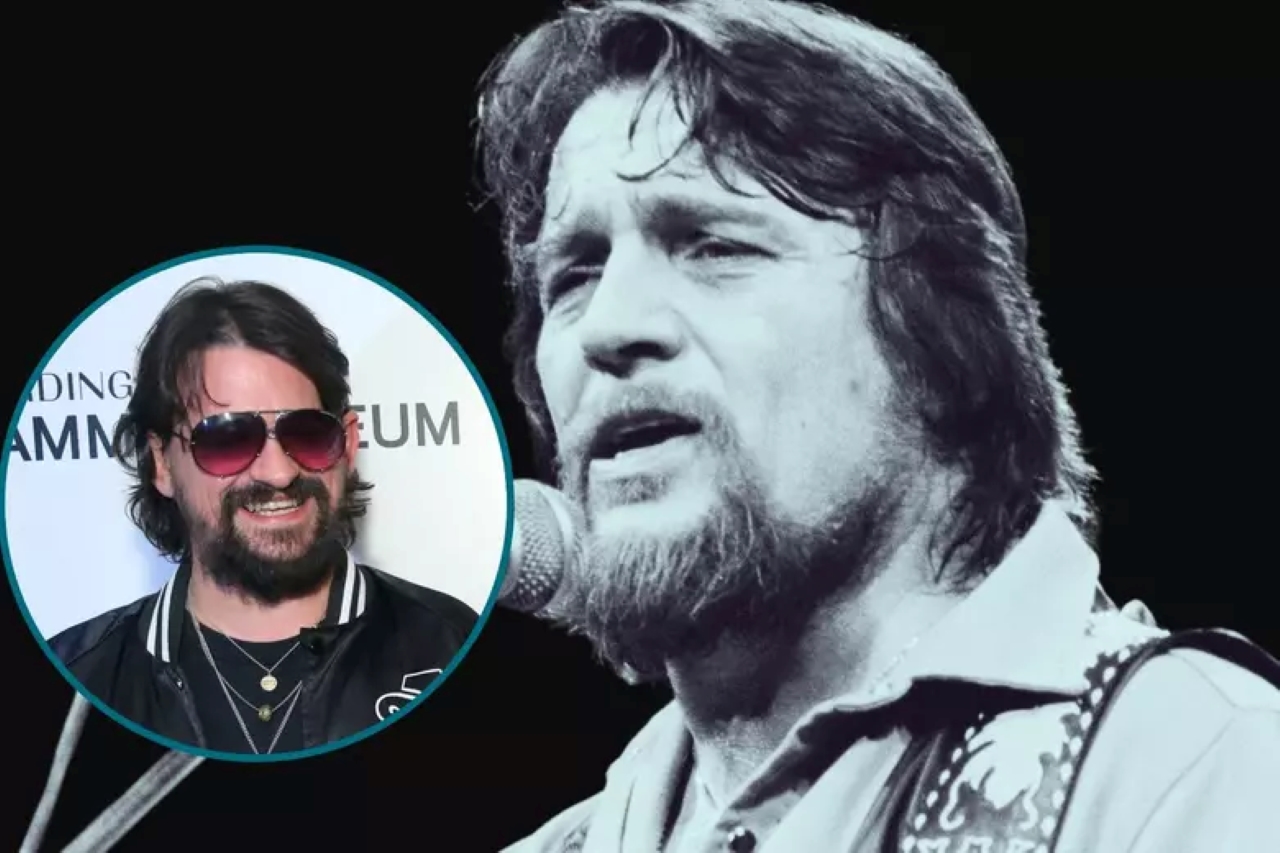🌵 The 1970s: A Rebellion in the Making
By the mid-1970s, country music was at a crossroads. Nashville had built a polished, assembly-line industry that churned out songs about pickup trucks, barrooms, and rhinestone suits. Behind the glitter and the “Nashville Sound,” many artists felt suffocated. The music no longer carried the grit, honesty, and raw edge that had once defined country’s soul.
Waylon Jennings was at the heart of this storm. A former bassist for Buddy Holly, Waylon had spent years fighting for his artistic freedom. He wanted control over his records, the ability to choose his songs, and a sound that reflected his own life—not what executives thought would sell.
In 1975, with frustration boiling over, Waylon stepped into the studio and recorded a track that would shake Nashville to its core: “Are You Sure Hank Done It This Way?”
It was not just a song. It was a challenge. A statement. A middle finger to the machine that tried to tame him.

🎶 A Song as a Weapon
The title itself was genius. By invoking Hank Williams, the ultimate country legend, Waylon tapped into something sacred. Everyone in Nashville revered Hank. He was the symbol of authenticity—the man who lived and died by the truth in his songs.
But Waylon wasn’t paying tribute. He was asking a question, almost sarcastically: “Is this really how Hank would have done it?” Would Hank Williams, who sang about heartbreak and honky-tonks with whiskey-soaked honesty, have stood on stage in rhinestone suits, singing prefabricated hits for an industry machine?
The lyrics cut deep:
-
“It’s the same old tune, fiddle and guitar / Where do we take it from here?”
-
“Rhinestone suits and new shiny cars / It’s been the same way for years.”
In just a few lines, Waylon skewered everything Nashville had become. It was bloated, artificial, and detached from its roots. And he was done playing along.
Musically, the song was equally rebellious. It was loud, driving, with thumping drums and electric guitar snarls. It didn’t sound like Nashville—it sounded like Texas roadhouses and outlaw bars. It was rock & roll married to honky-tonk, a sonic revolution that dared anyone to call it “too rough.”
🔥 The Outlaw Spirit
When “Are You Sure Hank Done It This Way?” was released as the lead single from Waylon’s Dreaming My Dreams album in 1975, it did more than climb the charts (it became his first number one as a solo artist). It gave birth to a movement.
Fans—especially younger ones—felt the raw honesty. They were tired of the plastic Nashville sound. They wanted country that reflected real lives, real struggles, and real freedom. Waylon delivered that, not just in this song, but in his entire outlaw persona.
At the same time, Nashville executives were horrified. Waylon had just openly mocked their formula, their image, their system. But they couldn’t stop him. The song was a hit. The people had chosen sides—and they chose Waylon.
The outlaw country movement, with Waylon Jennings, Willie Nelson, Kris Kristofferson, and later The Highwaymen, exploded. Suddenly, long hair, denim, and grit weren’t signs of rebellion—they were the new standard. The fences Nashville had built were burning down.
“Are You Sure Hank Done It This Way?” wasn’t just a critique. It was a manifesto. A declaration that country music belonged to the artists and the fans, not the businessmen in rhinestone suits.
🌟 A Legacy That Still Echoes
Nearly fifty years later, the song remains one of the most defining statements in country music history. It’s still performed by modern artists as both a tribute and a reminder of the constant struggle between art and industry.
Waylon Jennings proved that one song could change the balance of power. He forced Nashville to reckon with the fact that authenticity mattered more than polish, and that country music couldn’t be confined to formulas.
For Waylon himself, the track became his anthem. He was no longer just another singer trying to break through—he was the outlaw leader, the man who dared to ask the forbidden question and got away with it.
And for the fans, the song was liberating. It gave them permission to demand better, to reject the fake, and to embrace the real. It was, in every sense, a revolution wrapped in a three-minute song.
Would Hank have done it this way? No one knows. But thanks to Waylon, country music found the courage to ask—and that changed everything.